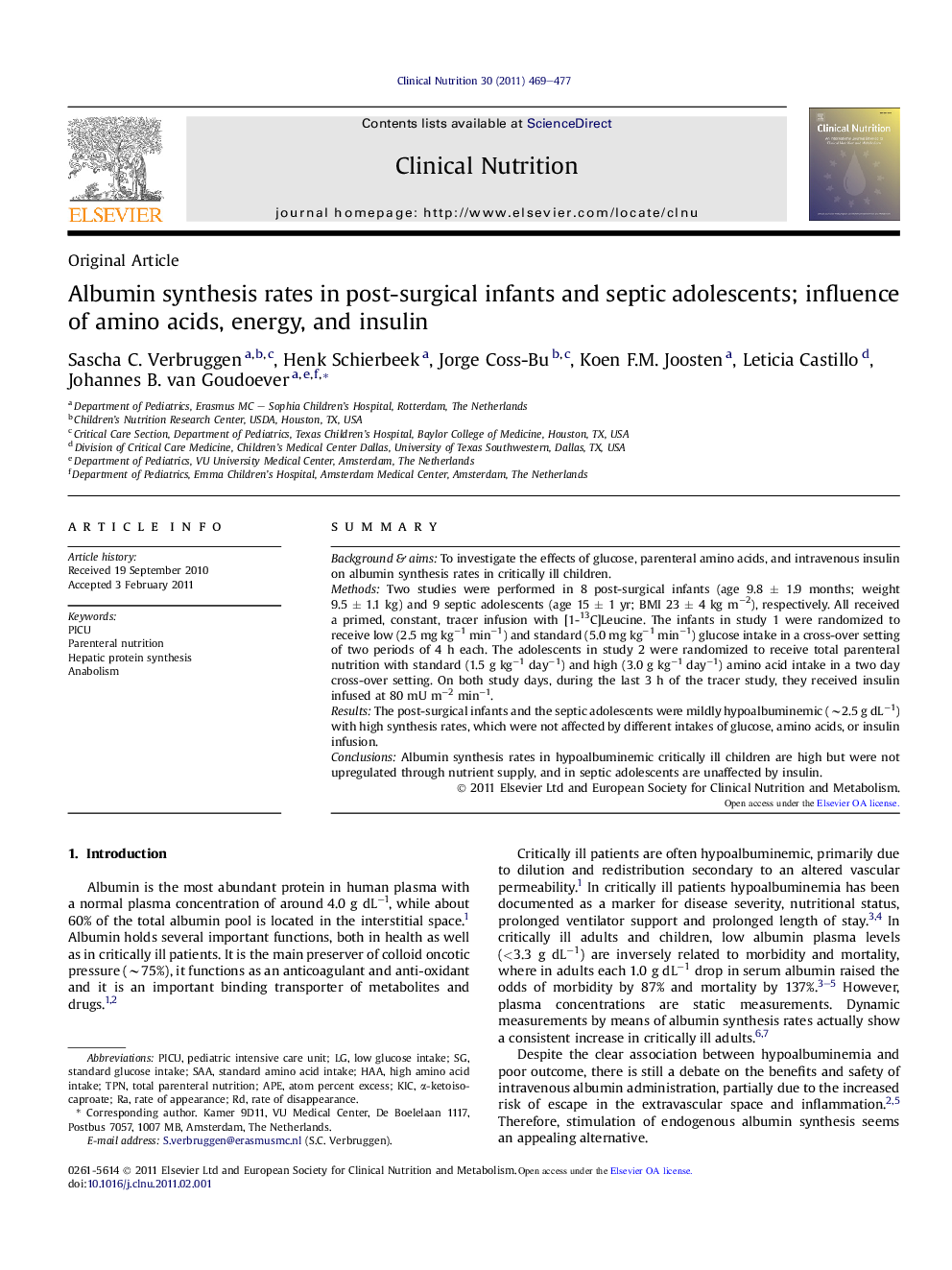| Article ID | Journal | Published Year | Pages | File Type |
|---|---|---|---|---|
| 5871628 | Clinical Nutrition | 2011 | 9 Pages |
SummaryBackground & aimsTo investigate the effects of glucose, parenteral amino acids, and intravenous insulin on albumin synthesis rates in critically ill children.MethodsTwo studies were performed in 8 post-surgical infants (age 9.8 ± 1.9 months; weight 9.5 ± 1.1 kg) and 9 septic adolescents (age 15 ± 1 yr; BMI 23 ± 4 kg mâ2), respectively. All received a primed, constant, tracer infusion with [1-13C]Leucine. The infants in study 1 were randomized to receive low (2.5 mg kgâ1 minâ1) and standard (5.0 mg kgâ1 minâ1) glucose intake in a cross-over setting of two periods of 4 h each. The adolescents in study 2 were randomized to receive total parenteral nutrition with standard (1.5 g kgâ1 dayâ1) and high (3.0 g kgâ1 dayâ1) amino acid intake in a two day cross-over setting. On both study days, during the last 3 h of the tracer study, they received insulin infused at 80 mU mâ2 minâ1.ResultsThe post-surgical infants and the septic adolescents were mildly hypoalbuminemic (â¼2.5 g dLâ1) with high synthesis rates, which were not affected by different intakes of glucose, amino acids, or insulin infusion.ConclusionsAlbumin synthesis rates in hypoalbuminemic critically ill children are high but were not upregulated through nutrient supply, and in septic adolescents are unaffected by insulin.
